News
-
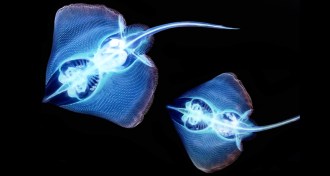 Neuroscience
NeuroscienceThe wiring for walking developed long before fish left the sea
These strange walking fish might teach us about the evolutionary origins of our own ability to walk.
By Dan Garisto -
 Health & Medicine
Health & MedicineScientists are tracking how the flu moves through a college campus
Researchers are following the spread of viruses and illness among students in a cluster of University of Maryland dorms to learn more about how the bugs infect.
-
 Animals
AnimalsIt’s a bad idea for a toad to swallow a bombardier beetle
Toads are tough. But there are some insects even they shouldn’t swallow.
By Susan Milius -
 Cosmology
CosmologyThe way dwarf galaxies move puts a new spin on galaxy formation
Distant dwarf galaxies orbit a larger galaxy in a coordinated loop, rather than randomly as expected. The finding could challenge theories of dark matter.
-
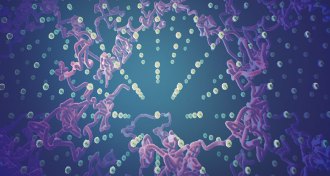 Physics
PhysicsLaser experiment hints at weird in-between ice
Scientists spot signs of an unusual phase of water called superionic ice.
-
 Astronomy
AstronomySome of TRAPPIST-1’s planets could have life-friendly atmospheres
The seven planets orbiting TRAPPIST-1 are probably rocky and some may have life-friendly atmospheres, two new papers suggest.
-
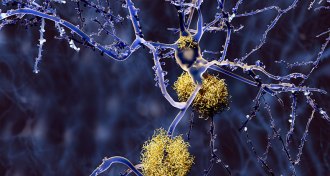 Neuroscience
NeuroscienceA blood test could predict the risk of Alzheimer’s disease
A blood test can predict the presence of an Alzheimer’s-related protein in the brain.
-
 Animals
AnimalsA peek into polar bears’ lives reveals revved-up metabolisms
Polar bears have higher metabolisms than scientists thought. In a world with declining Arctic sea ice, that could spell trouble.
By Susan Milius -
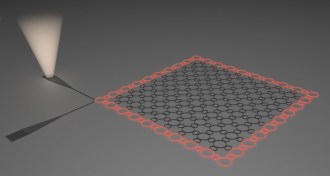 Tech
TechNew laser emits a more stable, energy-efficient light beam
A new type of laser could emit more stable, energy-efficient light beams than its conventional counterparts.
-
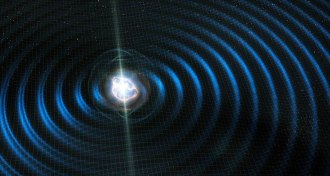 Physics
PhysicsGravity doesn’t leak into large, hidden dimensions
Gravitational waves from a recently observed neutron star merger offer no evidence of large, unknown dimensions.
-
 Health & Medicine
Health & MedicineZika may not be the only virus of its kind that can damage a fetus
Zika may not be alone among flaviviruses in its ability to harm a developing fetus, a new study in mice finds.
-
 Earth
EarthGassy farm soils are a shockingly large source of these air pollutants
California’s farm soils produce a surprisingly large amount of smog-causing air pollutants.